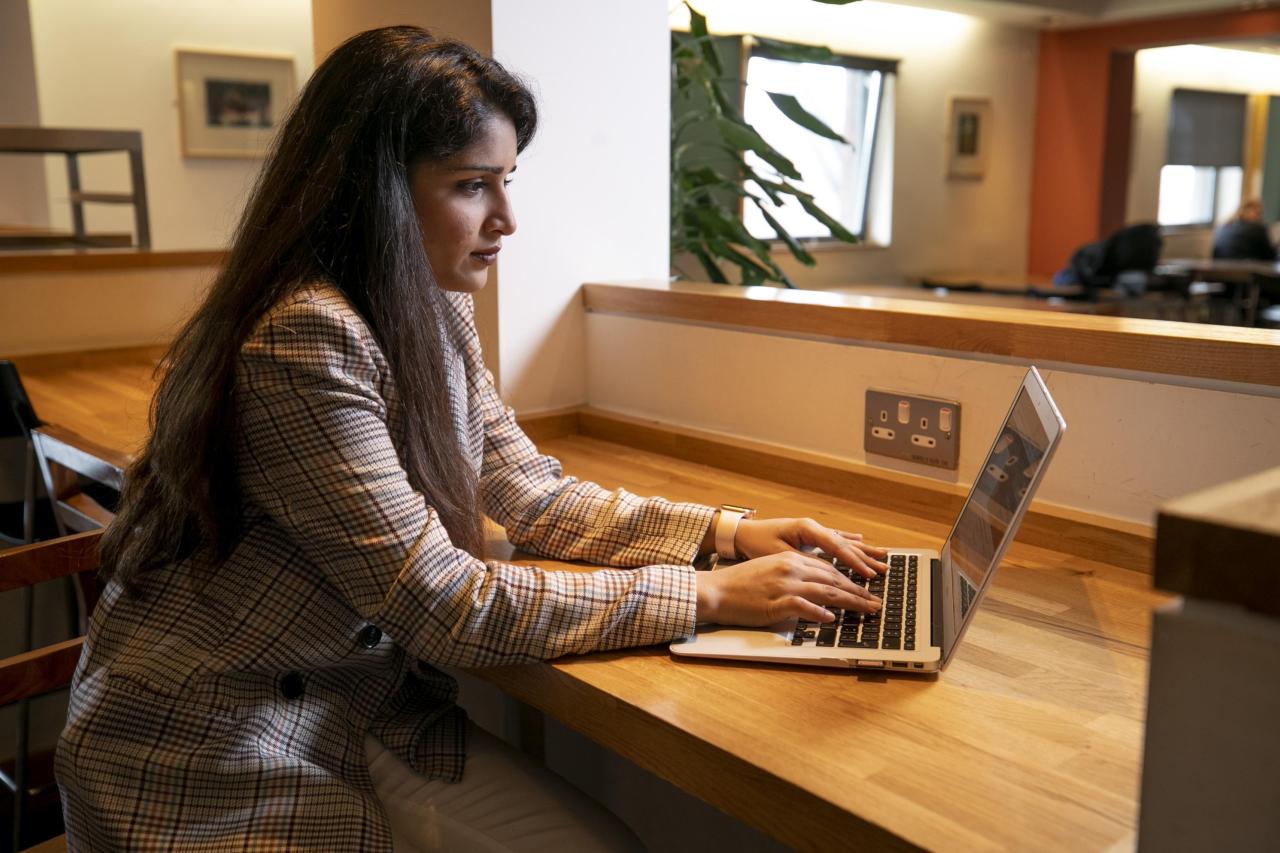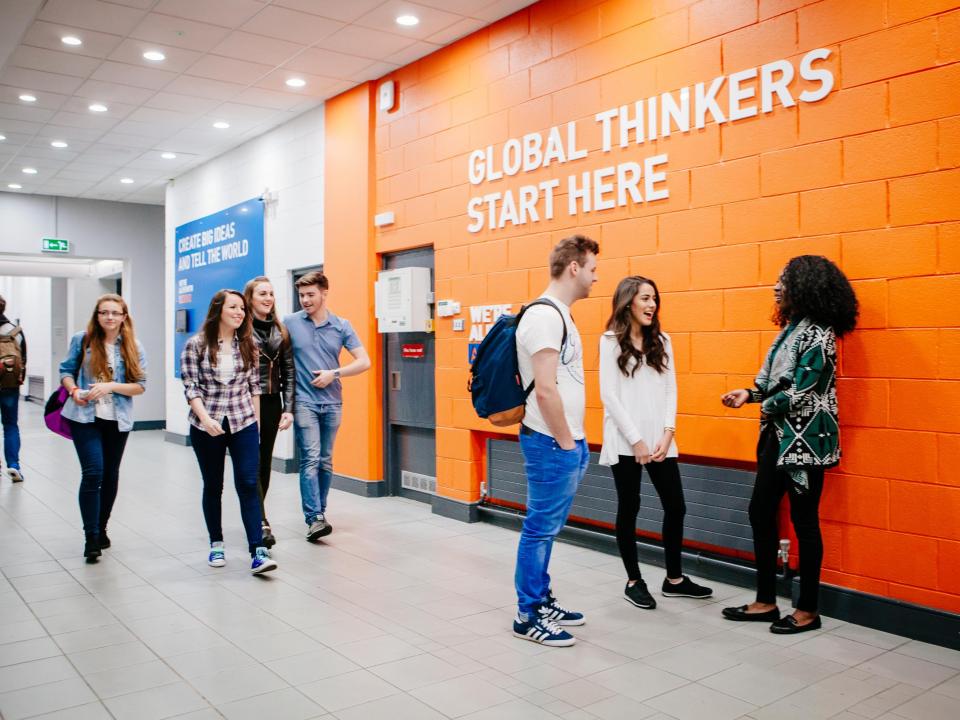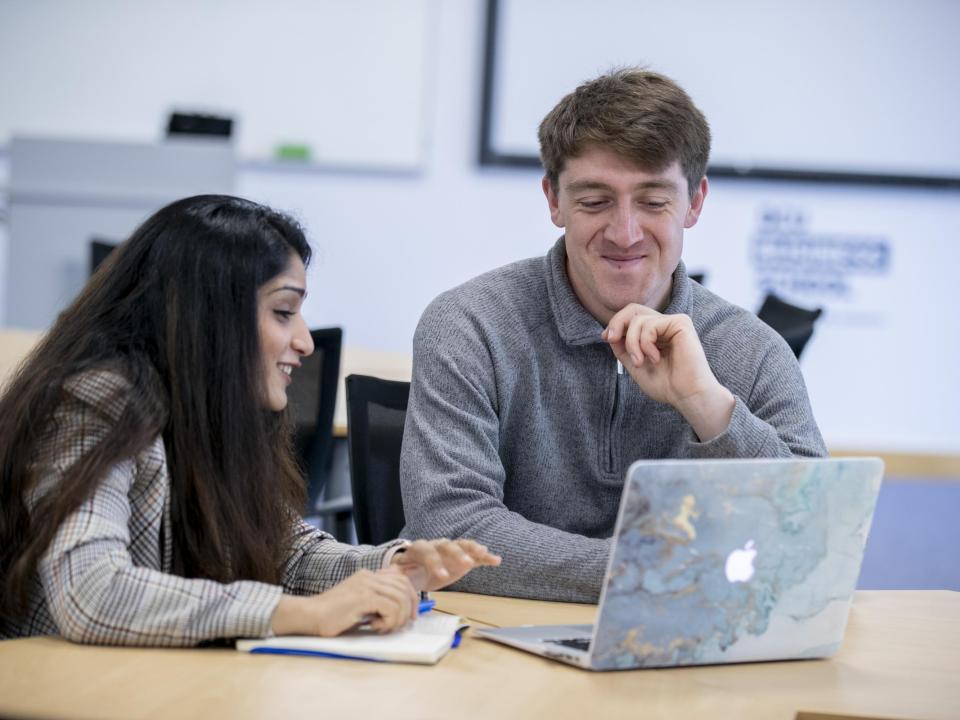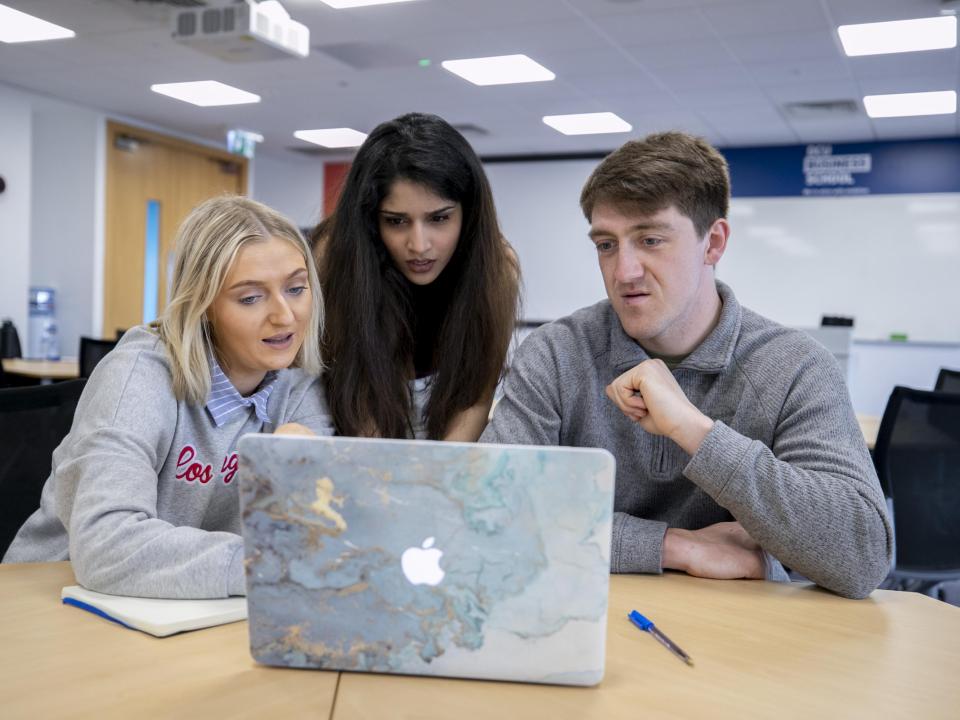Overview
This exciting course gives you the opportunity to be part of the global aviation sector. If you’re interested in being an air traffic controller, or a pilot, or if you want to be a leader in other areas of aviation management, this programme is for you.
In addition to a general management education, the course provides you with specialist knowledge in all areas of aviation and qualifies you for careers in demanding positions in this growing industry sector.
Why DCU
DCU People
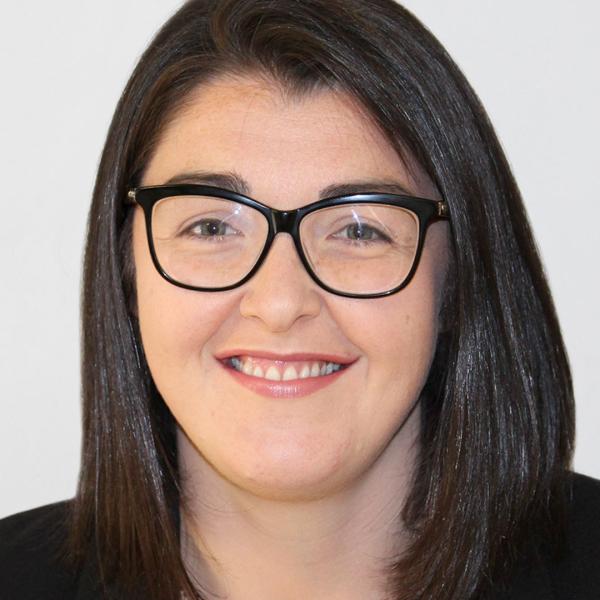
From a young age, I have always been interested in travelling and the world of aviation.
Read more about Katie Walsh
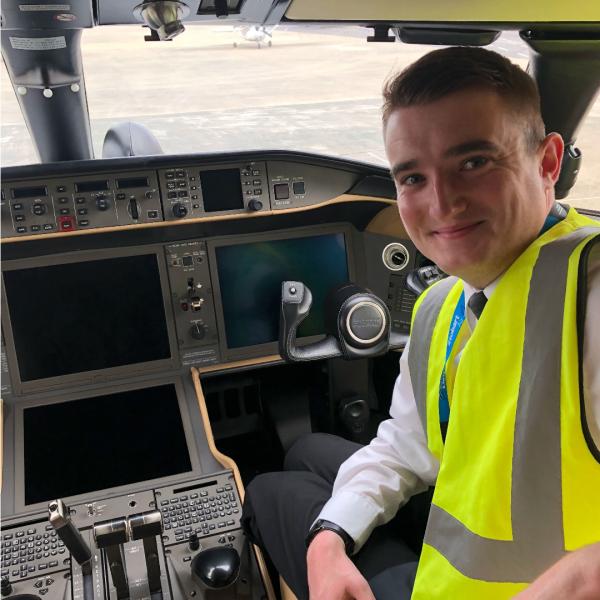
Hello Prospective DCU students, my name is Stephen Kennedy and I am a graduate of the BSc Aviation Management/ Aviation Pilot Studies Pilot Studies.
Read more about Stephen Kennedy
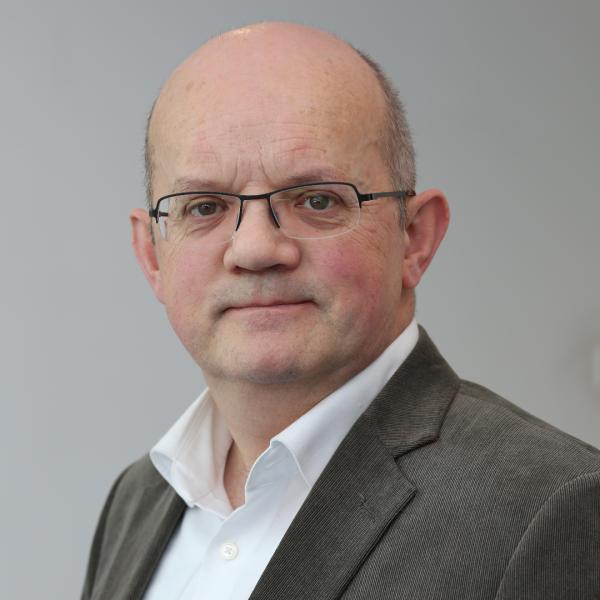
Since 2010, over 200 students have graduated from the AMPS degree programme to work in various parts of the aviation industry, reflecting industry satisfaction with the DCU programme and
Read more about Dr Cathal Guiomard
Careers & Further Options
Careers
Aviation is a high-tech, dynamic and competitive industry operating in a global arena. Both aviation management professionals and airline pilots need specialist aviation management skills, and career options within the industry are diverse.
DCU graduates are highly sought after by employers. Our graduates work in environments ranging from large multinationals to SMEs, family businesses and start-ups across every sector. DCU Careers Service has a number of learning and development initiatives in place for our students, giving them the skills they need for a successful career path. Go to our Careers site to find out more about career planning, our mentorship programme, skills development and online resources for students when working on CVs and making applications.
Entry Requirements
In addition to the general entry requirements for admission to the university the following entry requirements apply: Minimum of O4 or H6 in Mathematics.
In addition to the general entry requirements for admission to the university the following entry requirements apply: GCE A Level D or GCE AS Level C or GCSE C Mathematics.
Please visit our Admissions webpage for details on course requirements or how to apply to DCU.
Please visit our QQI FET webpage for details on DCU courses, open days, campus tours or school visits.
To apply to DCU, please visit www.cao.ie.
Mature entry is a competitive process. Applicants must demonstrate:
- a genuine interest in the programme(s) they are applying for
- academic experience and competency in their chosen field of study
- an ability to engage and succeed on the programme
All applicants must complete a statement of interest to be considered for the mature application route.
For further guidance on the mature application process please see the CAO Website
No Entry Path
International candidates are expected to have educational qualifications of a standard equivalent to those outlined above. In addition, where such candidates are non-native speakers of the English language they must satisfy the university of their competency in the English language. For further information on international applications click here.
Course Structure
- Critical Thinking
- Learning Innovation for Enterprise
- Accounting
- Aviation Sector and Flying Theory 1
- Aviation Policy
- Economics
- Foundations for Aviation Studies
- Airport Operations
- Business Analytics | Mathematics
- Operations Management
- Airline Structures and Standards
- Airline Economics and Finance
- Aviation Sector and Flying Theory 2
- Sustainable Aviation
- Financial Management
- HR Management
- Applied Business Analytics
- The Innovators Toolkit
- Critical Thinking for Business
- Advanced Operational Modelling
- Aviation Safety Management
- Aviation Business Management
- Aircraft Leasing
- Cargo Operations
INTRA (Aviation Industry)
In your final year, the course is divided into three streams. Some students will opt to pursue integrated flight training at an approved Flight Training Organisation with a view to qualifying as a commercial pilot (Airline Transport Pilot Licence (ATPL))*.
A second stream will choose to seek training as air traffic controllers (for instance at the Irish Aviation Authority).
The final stream will choose to follow more specialist studies in aviation management here in DCU. Note that while all students who pass their third year DCU exams will qualify to proceed to their final years of study, if you seek a piloting or ATCO career you will also need to pass a selection process to be admitted to a pilot training college or ATCO training.
- Pilot Studies Specialism (BSc in Aviation Management with Pilot Studies) Flight Training Organisation (FTO)
- Ground School – Theory
- FTO - Frozen ATPL
- Pilot Study Reflections
OR
- Air Traffic Controller Specialism (BSc in Aviation Management with ATCO Studies) ATCO Training Organisation
- On-the-job Training
- Rating Training
- Controller Study Reflections
OR
- Aviation Studies specialism (BSc in Aviation Management) Aviation Industry Project
- Business Strategy
- Contingency Management for Aviation
- Business and Professional Ethics
- Fleet Planning
- Supply Chain Management
- Project Management
- Cross Cultural Management
- Financial Instruments and Strategies
- Employer Relations
Fees and Funding
Fees
How To Apply
Applicants presenting EU School Leaving/FETAC Level 5 examinations:
Apply through the Central Applications Office (CAO) by 1st February or 1st May
To apply for this programme:
Candidates should apply directly here. Here's a quick step by step guide if you need help with your application.
Please provide
- Academic Transcripts for each and every year of study with English translation, if applicable.
- If applicable, provide evidence of competence in the English language as per DCU entry requirements.
Applications are accepted on an ongoing basis up to 1st July. All Non-EU candidates are advised to apply early, as places are limited.
All mature applicants apply through the CAO by 1st February. For further information and for special application procedures for mature students, please click here
No Entry Path
Please see Application Procedures or E-mail ugadmissions@dcu.ie.
Candidates required to apply through the CAO can apply online at www.cao.ie
Life On Campus
At DCU, our students can expect a unique campus experience. We are known for our excellent teaching and learning facilities, our active clubs and societies, and our great social and sporting facilities. All this makes DCU an exciting place to be.
DCU has three academic campuses; Glasnevin, St. Patrick’s and All Hallows (both in Drumcondra), all close to Dublin City centre.
They can be reached by public transport, Dublin Bus and Bus Éireann, with our Drumcondra campuses a ten minute walk from Drumcondra Train Station. Glasnevin is a 20 minute walk from St Patrick’s and All Hallows. They are also linked by Dublin Bus.
Each campus has a library (O’Reilly, Cregan and Woodlock Hall), study spaces, restaurants, and on-campus residencies. There are sports facilities on Glasnevin and St. Patrick’s, and there is a dedicated sports campus, St Claire’s, located near Glasnevin on the Ballymun Road.
DCU’s 19,000 students have access to exceptional teaching and learning facilities across our three academic campuses.
These include modern learning theatres, research centres, a new media and TV studio, radio/podcast studios, computer suites and advanced labs in the areas of Languages, Engineering, Physics, Chemistry and Biotechnology, as well as a Sports Performance centre and a training hospital ward. In 2021, we opened our first virtual reality ‘Leadership Lab’, which is located in our Business School.
We continue to improve and update our facilities. For example, construction of a new world-class STEM facility is underway on the Glasnevin campus. With capacity for an extra 3,000 STEM students, this facility will advance DCU’s international reputation for excellence in science and health, computing and engineering disciplines.
Studying in DCU isn’t just about course work. The university is rich in student life and activities.
There are more than 140 clubs and societies for students in DCU, with ‘Clubs & Socs’ days taking place on both the Glasnevin and Drumcondra campuses at the start of the academic year. They span everything from rugby to rock climbing, anime to jazz.
For many students, sport is an important part of the DCU experience. DCU’s Sports Complex boasts a 25 metre swimming pool, fitness centre gym, all-weather pitches and squash courts, as well as soccer, GAA and rugby pitches. DCU Dóchas Éireann, the university’s GAA club, is the largest third level Gaelic Games club in the country. Meanwhile, DCU Athletics has been Ireland’s highest achieving university club for many years. And DCU has dozens of other clubs to get involved in, from Archery to Weightlifting.
The Glasnevin campus is home to our purpose built, state-of-the-art student centre, The U, which serves the needs of a rapidly growing student body. Here, you will find the Student Leadership and Lifeskills Centre, performing arts and cultural spaces for students and the wider community, and the Entrepreneurship and Innovation Hub. Also located on our Glasnevin campus is The Helix, our renowned performing arts centre.
On our St Patrick’s campus, we have the Java Student Hub, a vibrant, warm and welcoming space where students can meet for coffee, play music, use the projector to watch events, or just relax. The walls of the Java Hub were designed based on the cultural history of St Patrick’s Campus, including the special references to the notable sporting history and history of the arts.
We have a number of academic, professional and social supports for students.
Student Advice & Learning Skills Centre - Offers a wide range of supports and services to students and advice
The Writing Centre - drop-in writing workshops for students through the academic year
Maths Learning Centre - provides maths support for students of all ability levels with maths modules
Student Learning - facilitate the transition from passive to active learning for students at DCU, by teaching study skills, nurturing critical thinking and building student confidence.
Careers work with students to help them on their professional journey into graduate employment.
Our student support team offers a comprehensive support programme, helping students make that all important transition into university life and focusing on building confidence and skills which are key to success at third level.

DCU Glasnevin Campus
FAQs
Does DCU have partner universities around the world to go to?
Yes, see the full list of the universities you can travel to (depending on your course). For further specific information you should contact the course contact.
For the business courses how big are class sizes like and are there work placements?
There are some large lectures for common modules but these are supported by smaller weekly tutorial groups of approx. 30 people. There are work placements in our Business school.
What are some of the companies that students from the BSc multimedia have gone on to work for?
Some companies include: TV3, BBC, Google, LinkedIn, Facebook, Yahoo, Setanta Sport & independent production companies.
See where your future career could be.

